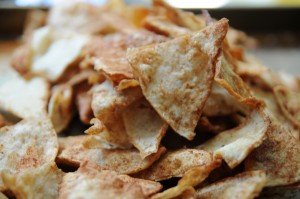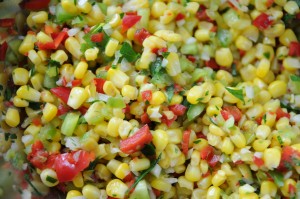There are many things I don’t blog about.
For as much as I write about “my life” there are certain aspects that I keep offline and in the confines of my home. One of them is my work offline, my work as a minister for a Catholic church. It’s odd. For as much as I love my work, for as much strength and insight I get as a minister, it’s very difficult for me to openly write about it.
Some of that changed this past week though.
Nick and I job share one position. He oversees all community outreach programs and non profits organizations, logistics of our trips to El Salvador and any service work programs. I oversee adult faith formation, spirituality groups, education classes, and women’s issues. It’s a healthy job, one that allow flexibility so we can be hands on parents with Isaiah as he grows up in the context of faith and relationship with other kids of all ethnicities, class, language, background, and race.
One of the things Nick and truly value about our position is the gift of community. For years – from Cincinnati, to Boston, to everywhere in between – we talked about community, how to build it, how to sustain it, how to define and identify it. Community. It changes throughout our life, but it rarely alters in its necessity. For the three years we have been in Cleveland, we have found and built a community here. It astounds me how in three years so many attachments can be made, but then again, prior to this move to Cleveland, I’ve never lived in one place for more than one year. From 18 years old to 29 years old, my residencies changed every year. Community, indeed, grows with soil and staying planted. We haven’t uprooted ourselves and have been overwhelmed by the gifts of community.
Being a part of community, though, comes with high risks of disappointment and heartbreak. In six days, I attended three funerals. The father of dear friend died, the brother of a co-worker passed from cancer, and the third, an active parishioner – wife and mother – suddenly died following the previous two. Three funerals. Three individuals whom I did not know well, but by association feel like were part of my family. I was in touch or close to family members of the deceased and to witness their pain, sometimes so raw I had to look away, caused my soul to ache. What people leave behind – love, brokenness, confusion, chaos, anger – avalanches the unsuspecting families and their pain becomes palpable. In my palm, I could almost close my fingers around the now motherless son standing by his mother’s casket.
I sat there, an observer, removed in some ways, but somehow more emotionally engaged at that point than any other point I could remember in recent history. It was then, at the third funeral for a young mother, after I questioned why I was so affected by her passing, that the definition of community revealed itself to me. Without word, without explanation, without voice, community revealed itself in the breaking of my own heart for a woman I knew but never exchanged much more than a few conversations, a handful of greeting nods, and group social moments. My heart broke – broke into handfuls – for this family who I had grown to know and care for to suffer such a devastating loss.
Funerals, Catholic funerals specifically, can be the most clarifying hours for believers. Nick and I talk about this often. We watch with regularity the glory of baptism and the darkness of death, and the range of human emotion is confounding and stimulating. The questions of life that we seem so obsessed with – career, financial security, relationship status, health – quiet during funeral masses. The only thing I really hear is a whispering voice, urgent but not wild, repeatedly asking, “What matters to you most?”
You take nothing with you. None of this. Not the furniture or the cars, the roses or the quilts, the letters or the journals, the diplomas or the scarves — nothing. We take nothing with us except what we carry in our hearts. And those don’t have physical hands, it has memory.
Death seeped into my life three times this week and I sat and watched it settle into the lives of three families, some with holes so large I wonder how God can repair them. And then I felt it myself, pain that did not belong to me morph into a dagger so big and sharp that it dug itself a hole in my own heart as well.
But I guess that’s one of the most profound lessons of community: to let my heart be broken with what breaks someone else.


